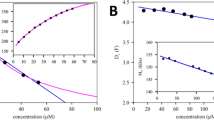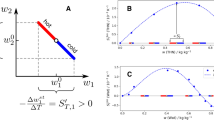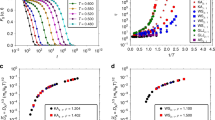Abstract
THERE are comparatively few cases of binary mixtures in which the activity or fugacity of one component has been interpreted in terms of molecular properties. Well-known instances of such treatments are the Debye–Hückel theory of electrolytes and Hildebrand's theory of regular solutions. We have examined the case of a binary mixture where interaction between the two components is negligible, but where one of the components (the solute) has a tendency to form multiplets of any degree of complexity by means of association, Since interaction is assumed to be negligible, the non-ideality of the solute is attributable entirely to association, and each multiplet species (including the monomer) may be supposed to constitute an ideal sub-system. We propose to call mixtures of this type 'perfect associating mixtures'.
This is a preview of subscription content, access via your institution
Access options
Subscribe to this journal
Receive 51 print issues and online access
$199.00 per year
only $3.90 per issue
Buy this article
- Purchase on Springer Link
- Instant access to full article PDF
Prices may be subject to local taxes which are calculated during checkout
Similar content being viewed by others
Author information
Authors and Affiliations
Rights and permissions
About this article
Cite this article
WARD, A., TORDAI, L. Activities of Associating Solutes. Nature 162, 494–495 (1948). https://doi.org/10.1038/162494b0
Issue Date:
DOI: https://doi.org/10.1038/162494b0
This article is cited by
-
Micro-rheology of pigment dispersion by “ball-milling” in non-aqueous media
Kolloid-Zeitschrift (1960)
-
A study of adsorption and sedimentation in titania suspensions
Kolloid-Zeitschrift (1958)
Comments
By submitting a comment you agree to abide by our Terms and Community Guidelines. If you find something abusive or that does not comply with our terms or guidelines please flag it as inappropriate.



